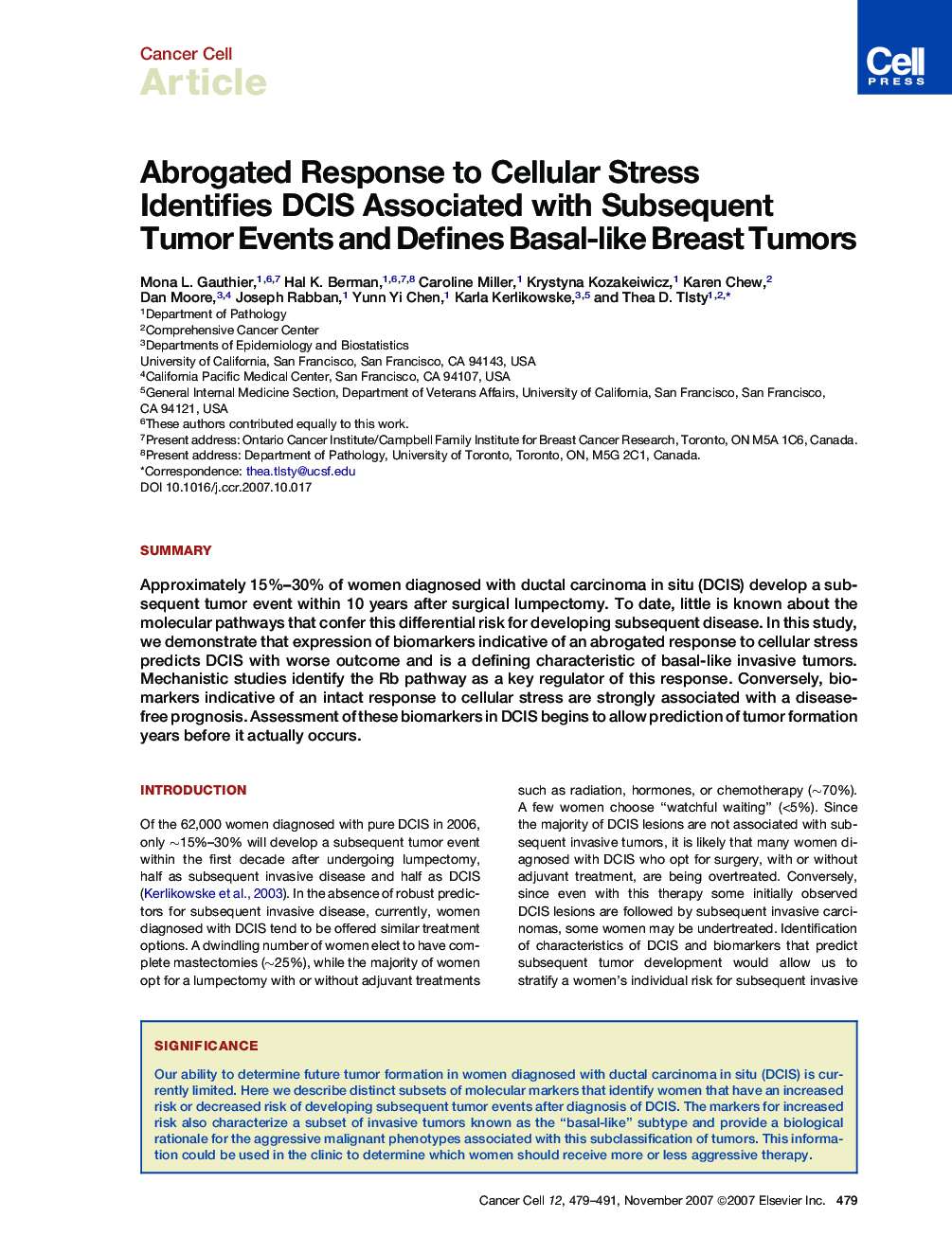| Article ID | Journal | Published Year | Pages | File Type |
|---|---|---|---|---|
| 2108422 | Cancer Cell | 2007 | 13 Pages |
SummaryApproximately 15%–30% of women diagnosed with ductal carcinoma in situ (DCIS) develop a subsequent tumor event within 10 years after surgical lumpectomy. To date, little is known about the molecular pathways that confer this differential risk for developing subsequent disease. In this study, we demonstrate that expression of biomarkers indicative of an abrogated response to cellular stress predicts DCIS with worse outcome and is a defining characteristic of basal-like invasive tumors. Mechanistic studies identify the Rb pathway as a key regulator of this response. Conversely, biomarkers indicative of an intact response to cellular stress are strongly associated with a disease-free prognosis. Assessment of these biomarkers in DCIS begins to allow prediction of tumor formation years before it actually occurs.
